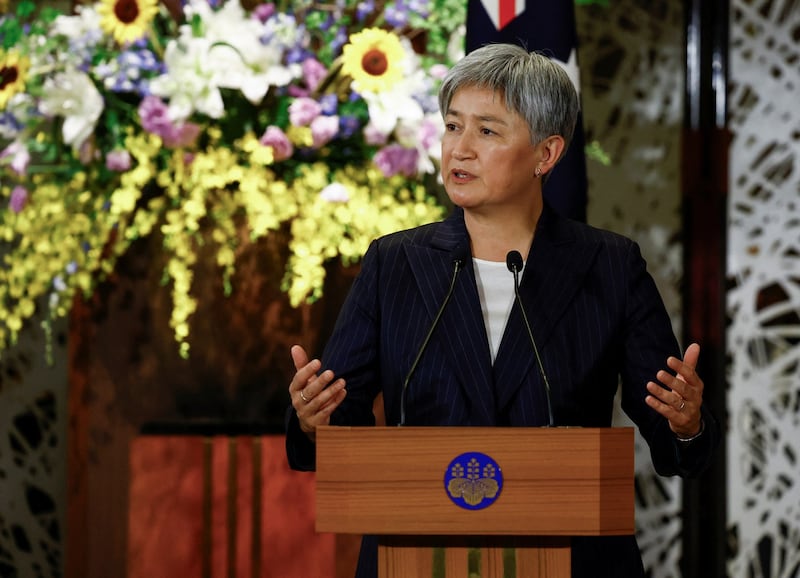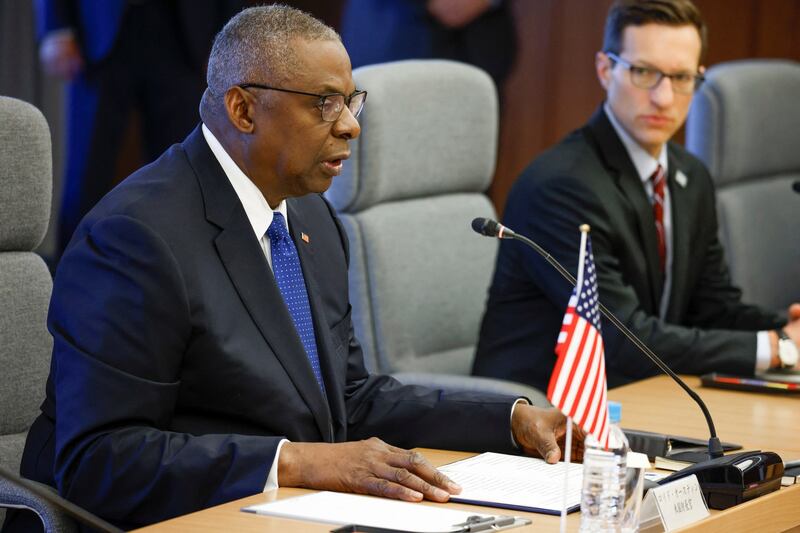Foreign ministers from the Quadrilateral Security Dialogue, commonly known as the Quad, met in Tokyo on Monday to discuss deepening collaboration in various areas, including on security and humanitarian issues in the Indo-Pacific.
Japan’s Yoko Kamikawa hosted Australia’s Penny Wong, India’s Subrahmanyam Jaishankar, and Antony Blinken from the United States, for the meeting, their first gathering since September 2023.
“We all know our region and our world are being reshaped. We all understand we face the most confronting circumstances in our region in decades,” Wong said in opening remarks.
“We all cherish the region’s peace, stability and prosperity and we all know it is not a given, we all know we can’t take it for granted.”

The meeting came after the U.S. announced on Sunday plans for a major revamp of its military command in Japan to deepen cooperation following security talks between Blinken and Secretary of Defence Lloyd Austin and their respective Japanese counterparts, Kamikawa and Minoru Kihara.
“The United States will upgrade the U.S. Forces Japan to a joint force headquarters with expanded missions and operational responsibilities,” Austin told reporters.
“This will be the most significant change to U.S Forces Japan since its creation and one of the strongest improvements in our military ties with Japan in 70 years.”
The United States has about 50,000 troops in Japan.
RELATED STORIES
[ A palm reading: Japan’s navigation plan for Pacific watersOpens in new window ]
[ In China’s shadow, Philippines and Japan sign defense pactOpens in new window ]
[ North Korea’s Kim in military talks with Russian officialOpens in new window ]
The new command structure would be implemented in parallel with Japan’s plans to establish a joint command for its forces by March 2025, the allies added in a joint statement.
The ministers also criticized what they called China’s “provocative” behavior in the South and East China Seas, its joint military exercises with Russia and the rapid expansion of its arsenal of nuclear weapons.
“Such behavior is a serious concern to the Alliance and the entire international community and represents the greatest strategic challenge in the Indo-Pacific region and beyond,” the ministers said, adding that China “seeks to reshape the international order for its own benefit at the expense of others.”
US cooperation with Japan, South Korea
Separately, the defense chiefs of South Korea, the U.S. and Japan agreed to increase their cooperation on North Korea under their Trilateral Security Cooperation Framework, or TSCF, South Korea’s defence minister said.
Under the pact, the three countries are expected to deepen cooperation for the effective operation of their real-time sharing of North Korean missile data and regularly carry out joint drills, including the multidomain Freedom Edge exercise, based on a multi-year plan.

The three defense chiefs also voiced concerns over growing military and economic cooperation between North Korea and Russia, denouncing the North’s diversification of nuclear delivery systems and test launches of multiple ballistic missiles, as well as other actions that increase tension on the Korean Peninsula.
Blinken met his Chinese counterpart, Wang Yi, at a regional conference in Laos on Saturday and said that the United States and its partners wanted to maintain a “free and open Indo-Pacific,” urgingSoutheast Asian countries to help address challenges including China’s “escalating and unlawful actions" in the South China Sea.
Both Blinken and Wang were attending the security-focused ASEAN Regional Forum, which included discussions on the conflicts in Gaza and Ukraine, North Korea’s nuclear ambitions and tension in the South China Sea.
Edited by RFA Staff.
